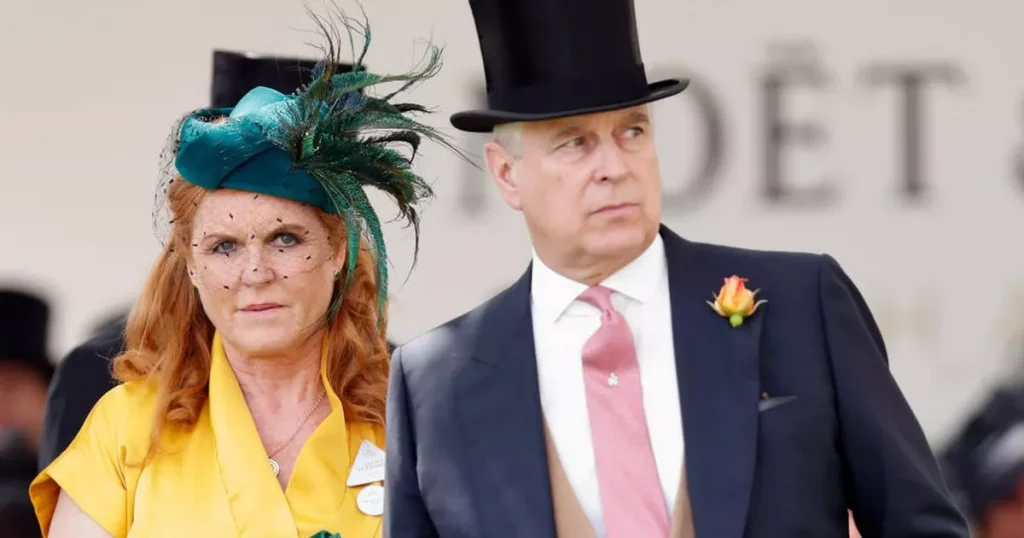Sarah Ferguson, the Duchess of York, and Prince Andrew, the Duke of York, present a unique and enduring relationship dynamic, continuing to share a residence at the Royal Lodge in Windsor Great Park despite their divorce nearly three decades ago. Their close bond, characterized by unwavering mutual support, has been publicly acknowledged by Ferguson on numerous occasions, particularly in the wake of controversies surrounding Prince Andrew. In a recent interview, Ferguson offered a glimpse into the nature of their relationship, drawing a parallel between her current role with Andrew and her past experience caring for her late father, Major Ronald Ferguson. She described her father’s mental health struggles and her role as his caregiver, noting a sense of responsibility she feels extends to her present relationship with Andrew. This comment hints at the depth of her involvement in supporting the Duke, who has faced intense public scrutiny and withdrawn from royal duties due to his association with Jeffrey Epstein.
Ferguson’s dedication to Andrew is unwavering, exemplified by her unwavering public defense of him and her staunch declaration of continued love and support. In a candid interview, she reiterated her love for the Duke, describing him as a kind and good-hearted man. She fondly recalled their wedding as the best day of her life, acknowledging the sacrifices she made in terms of personal anonymity. Ferguson emphasizes the enduring nature of their bond, framed by the principles of communication, compromise, and compassion. Her commitment to standing by Andrew, regardless of the circumstances, underscores the depth of their connection, which transcends the boundaries of their dissolved marriage. Her perception of Andrew as someone needing her care mirrors her past role with her father, potentially indicating a perceived vulnerability or need for emotional support from the Duke.
Their unconventional living arrangement, despite being divorced, raises questions about the nature of their relationship and the motivations behind their continued cohabitation. Ferguson’s description of Andrew as needing her care, in a manner similar to her father, suggests a dynamic of emotional support and dependency. This comparison provides a deeper understanding of their continued bond, implying that her relationship with Andrew involves a significant element of caregiving, mirroring her past experience with her father’s mental health struggles. While the exact nature of their current relationship remains private, Ferguson’s comments suggest a level of emotional intimacy and interconnectedness that goes beyond a typical post-divorce relationship.
The complexity of their relationship is further highlighted by Ferguson’s previous reflections on their marriage and its eventual dissolution. She attributed the breakdown of their marriage to external pressures and interference from courtiers, noting the limited time they were able to spend together due to Andrew’s naval duties and royal obligations. She lamented the lack of guidance and support they received in navigating the complexities of royal life and the demands placed upon their marriage. Ferguson expressed a belief that had they approached their challenges differently, and resisted the pressures to separate, they might have remained married. This retrospective analysis suggests a degree of regret and a sense that external forces played a significant role in the demise of their marriage.
The continued cohabitation of Ferguson and Andrew, despite their divorce, is unusual, especially within the context of the British Royal Family. Their close proximity and ongoing mutual support suggest a deep-seated affection and a commitment to maintaining a familial bond, despite the end of their romantic relationship. Ferguson’s recent comment regarding “looking after” Andrew, akin to caring for her ailing father, further reinforces this unique dynamic. It paints a picture of a relationship that transcends conventional labels, blurring the lines between romantic partners, divorced spouses, and supportive companions. This intricate dynamic provides a fascinating glimpse into the complexities of human relationships and the enduring power of connection.
The public perception of their relationship is often colored by the controversies surrounding Prince Andrew. However, Ferguson’s consistent support and her willingness to publicly defend him demonstrate a level of loyalty and commitment that is remarkable. Her statements about their shared values of communication, compromise, and compassion suggest that these principles form the foundation of their enduring bond. Their ability to navigate a complex relationship dynamic while remaining publicly supportive of one another speaks to their resilience and their ability to prioritize their shared history and familial connection.
In conclusion, the relationship between Sarah Ferguson and Prince Andrew defies easy categorization. It is a complex mix of enduring love, mutual support, and a shared history that transcends their divorce. Ferguson’s recent comment about “looking after” Andrew provides further insight into the intricate dynamics of their unconventional relationship, suggesting a deep-seated sense of responsibility and care that goes beyond the typical post-divorce dynamic. While the exact nature of their current relationship remains private, their continued cohabitation, public displays of affection, and unwavering mutual support paint a picture of a unique and enduring bond. Their story offers a compelling lens through which to examine the intricacies of human relationships and the evolution of connection over time.














